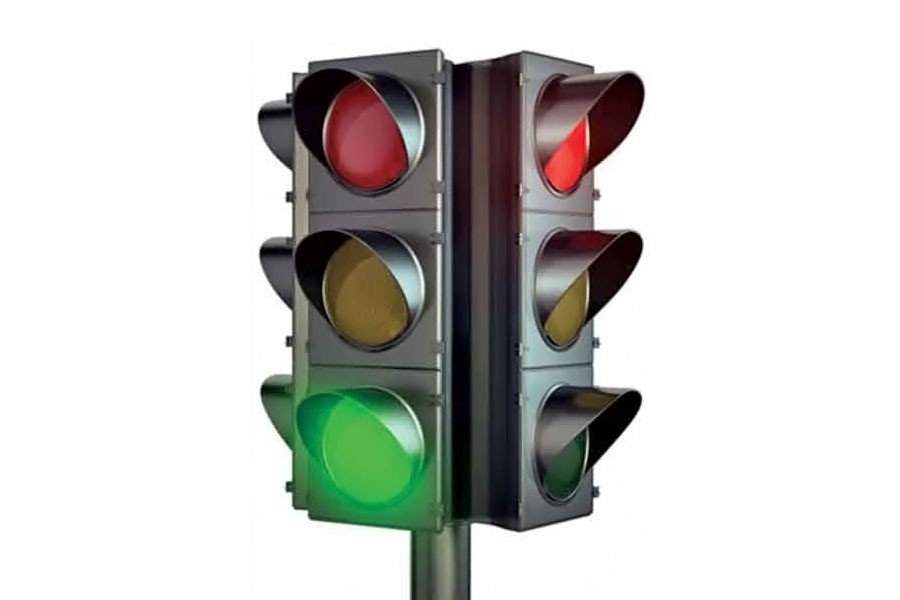Dhaka is finally set to get new automated traffic-signal system for managing booming and chaotic traffic, with four busy intersections coming first for piloting.
Dhaka Transport Coordination Authority (DTCA) has taken up a pilot project to introduce the digital traffic signals, against the backdrop of the existing signalling systems having failed to work, somehow.
Officials said the new signal system has been planned first for Gulshan-1, Mohakhali, Paltan and Fulbaria intersections. The machines will replace men at other crossings following successful implementation at the four.
These signal lights will be operated through control system from where the lights will be changed with fixed time counting vehicles of all lanes.
DTCA has already signed contracts with four firms to carry out necessary civil works and install equipment and infrastructures, including camera, with grants from Japan International Cooperation Agency (JICA).
The project is being implemented under its integrated traffic-management project.
"Entire design of the intersections has been planned to change. With proper signs for vehicles of all lanes and pedestrians, different new equipment including vehicle-detectors, image vehicle-detectors, will be set up," said an official engaged with the project.
He said a special kind of CC TV will count cars of each lane of the road and guide the control room to calculate time for passing traffic of the lanes.
Even the camera will track the cars violating traffic signals to bring them to book by the law-enforcing agency concerned, the official added.
On implementation of the pilot project, the DTCA will hand over the control system to Dhaka Metropolitan Police (DMP) for operating.
The city's signal system has almost been operated manually although electronic signal system had been set up several times in the past.
Under Dhaka Urban Transport Project (DUTP), halogen-type traffic signal was installed on New Market-Mirpur road.
With support of the World Bank, Dhaka City Corporation also installed four types of traffic signals at 59 intersections in 2004.
In most of the cases, the signal system is turned useless by citing the operators' inability to manage traffic volumes and multimodal transports and undisciplined drivers. Unscientific signal system is also cited as cause of aggravating traffic congestion and its spread into surrounding areas, drastically dropping speed of the vehicles.
An efficient signal system in intersections provides orderly movement of vehicles, improved safety, provision for progressive flow of traffic in corridor, possible improvements in capacity, reduced travel times and aims to maximise traffic flow.
A JICA-supported study conducted in 2009 on 20 intersections in the city found eight intersections handle traffic more than 6000 per-car unit an hour.


